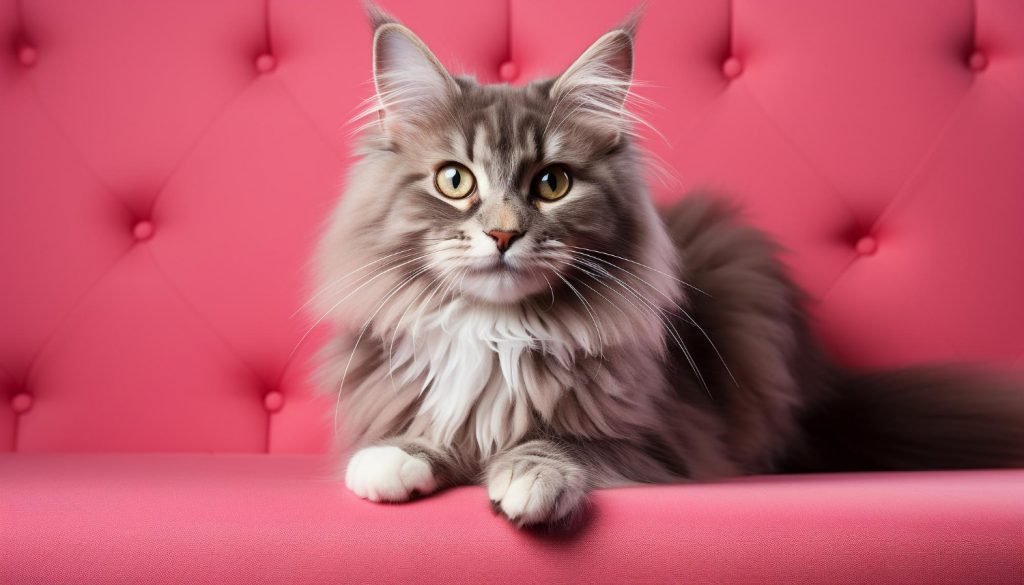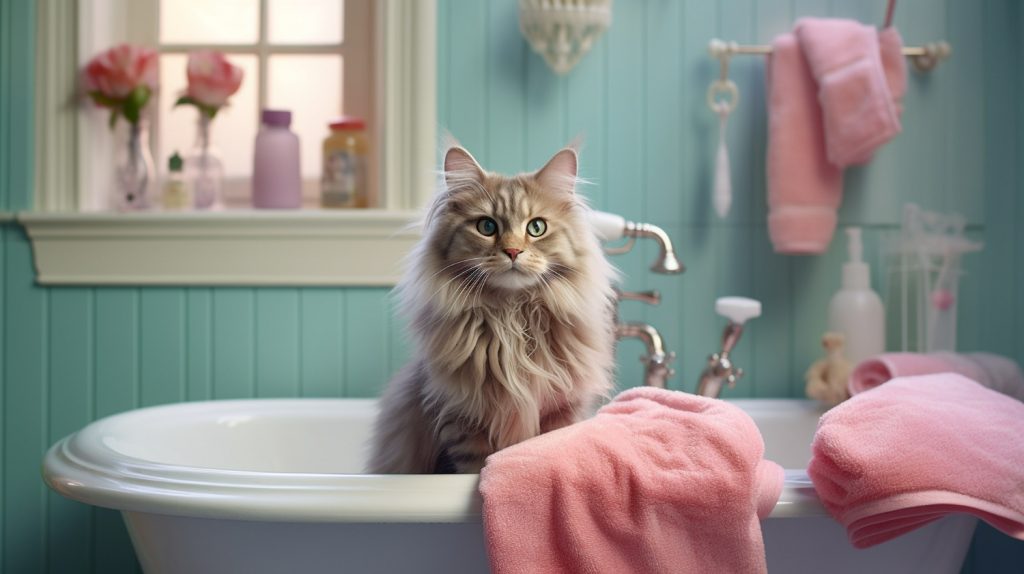Cats are known for their independent and seemingly carefree nature. However, just like humans, they can experience stress, too. As a cat owner, it’s important to be able to recognize the signs of stress in your feline friend. In this blog post, we will highlight five common signs that your cat might be stressed. Understanding these signs will not only help you provide a happier and healthier environment for your cat but also strengthen the bond between you and your furry companion. So, let’s dive in and learn how to decode your cat’s stress signals.
Why is it important to recognize stress in cats?
- Early Intervention: Recognizing stress in cats allows for early intervention, preventing the escalation of stress-related issues.
- Health and Well-being: Stress can negatively impact a cat’s health and well-being, leading to a variety of physical and behavioral problems.
- Improved Bonding: By identifying and addressing stress, cat owners can create a more comfortable and supportive environment, strengthening the bond between them and their feline companions.


Recognizing stress in cats is crucial for their overall health and happiness, enabling owners to provide the necessary care and support to ensure their well-being.
Common signs of stress in cats
- Changes in Behavior: Cats may exhibit changes in behavior when they are stressed. This can include hiding more often, becoming more aggressive or irritable, or exhibiting excessive grooming.
- Litter Box Issues: Stress can lead to changes in a cat’s litter box habits. They may start eliminating outside of the litter box or refuse to use it altogether.
- Loss of Appetite: Stress can cause a decrease in appetite in cats. They may eat less or refuse to eat altogether, leading to weight loss or other health issues.
- Excessive Vocalization: Cats may meow more frequently or exhibit other forms of excessive vocalization when they are stressed.
- Physical Symptoms: Stress can also manifest in physical symptoms such as diarrhea, vomiting, or excessive shedding.
Observing these signs can help identify if a cat is experiencing stress, and taking appropriate steps to alleviate it can contribute to their overall well-being.
Possible causes of stress in cats


- Environmental Changes: Cats are sensitive to changes in their environment, such as moving to a new home or rearranging furniture. These changes can disrupt their sense of familiarity and cause stress.
- Lack of Stimulation: Cats need mental and physical stimulation to stay happy and healthy. Boredom and lack of playtime can lead to stress and behavioral issues.
- Loud Noises: Cats have sensitive hearing, and loud noises like thunderstorms, fireworks, or construction noise can trigger stress and anxiety.
- Conflict with Other Animals: Cats are territorial by nature, and conflicts with other animals, whether they’re other cats or dogs, can cause stress.
Identifying and addressing these potential stressors can help create a calm and comfortable environment for your feline friend.
How to help reduce stress in your cat
Create a calm and safe environment


Creating a calm and safe environment is essential for promoting relaxation and peace of mind. Reduce Clutter: Having a clean and organized space can help reduce stress and create a sense of calm. Soft Lighting: Soft, diffused lighting can create a calming atmosphere and promote relaxation. Natural Elements: Incorporating natural elements such as plants or natural materials can help create a soothing and peaceful environment. Minimize Noise: Reducing unnecessary noise or using white noise machines can help create a quiet and serene space. Comfortable Furniture: Choosing comfortable and supportive furniture can enhance feelings of safety and relaxation. By implementing these strategies, you can create a calm and safe environment that promotes a sense of tranquility and well-being.
Provide plenty of mental and physical stimulation.
- Promotes Physical Health: Regular exercise and mental stimulation help keep your pet physically healthy. This can prevent weight gain, muscle atrophy, and other health issues associated with a sedentary lifestyle.
- Enhances Cognitive Abilities: Engaging in activities that require problem-solving or learning new tasks can help enhance your pet’s cognitive abilities. This can improve their overall intelligence and ability to adapt to new situations.
By providing plenty of mental and physical stimulation, you can ensure that your pet leads a happy and healthy life.
Establish a routine and stick to it.
Establishing a routine and sticking to it has many benefits. Firstly, it provides structure and organization to our lives, allowing us to manage our time more effectively. This can lead to increased productivity and reduced stress. Secondly, routines help to create good habits and break bad ones. By consistently following a routine, we can develop healthier habits, such as exercising regularly or eating nutritious meals. Lastly, routines provide a sense of stability and predictability, which can contribute to improved mental well-being. Knowing what to expect and having a sense of control over our daily activities can bring a sense of calm and comfort. Overall, establishing and sticking to a routine can greatly enhance our overall quality of life.
Use pheromone products or calming supplements.
- Promote Relaxation and Comfort: By creating a soothing environment, these products can promote relaxation and provide comfort for pets during stressful situations such as thunderstorms, fireworks, or vet visits.
- Improve Behavior: Pheromone products and calming supplements can also help improve behavior in pets by reducing aggression, excessive barking, and destructive tendencies.


While these products can be beneficial, it’s important to consult with a veterinarian to determine the most appropriate option for your pet’s specific needs. Additionally, they should be used in conjunction with a comprehensive behavioral training program for optimal results.
When to seek professional help
- Persistent Symptoms: If you have been experiencing symptoms for an extended period of time and they are not improving or are getting worse, it may be time to seek professional help.
- Severe Pain or Discomfort: If you are experiencing severe pain or discomfort that is affecting your daily life and is not relieved by over-the-counter medications, it is important to consult a professional.
- Mental Health Concerns: If you are struggling with your mental health, such as feeling constantly sad or anxious, having difficulty concentrating, or having thoughts of self-harm, it is crucial to reach out to a mental health professional.
Recognizing when to seek professional help is an important step in taking care of your overall well-being. It is essential to listen to your body and mind and seek the appropriate help when needed.
conclusion
Recognizing the signs of stress in your cat is crucial for their overall well-being. By paying attention to their behavior and body language, you can identify potential stressors and take steps to alleviate their anxiety. Some common signs of stress in cats include changes in appetite, excessive grooming, hiding or seeking solitude, aggression, and urinating outside the litter box. If you notice any of these behaviors in your cat, it is important to address the underlying causes and provide a calm and comfortable environment for them. Regular vet check-ups and creating a safe space for your cat can go a long way in reducing their stress levels and ensuring their happiness and health.


